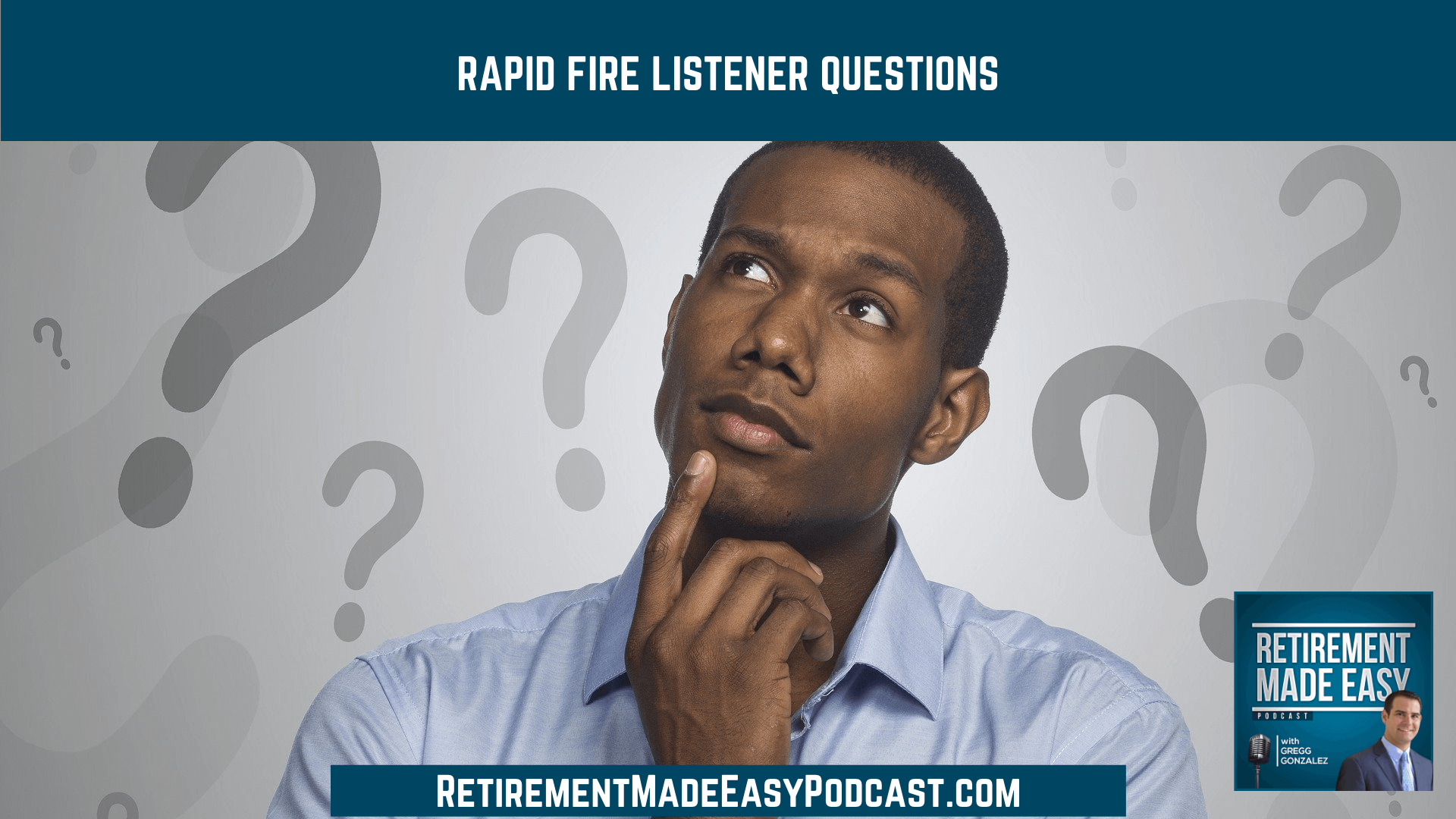
I love answering questions from you, my listeners. Each of you has unique situations and goals for your retirement and I understand that sometimes you need to hear someone speak directly to the specifics you’re facing. That’s why I’ve decided to answer listener questions. If you’d like to ask a question of your own, you can submit a question at the website (listed below). This episode I’ll cover as many topics as I can, rapid fire style.
You will want to hear this episode if you are interested in…
- Juan asks about long-term care policy premium increases [4:14]
- If I don’t need the money from a RMD, can I do a Roth conversion? [7:32]
- When selling my home for a profit, how much taxes should I expect to pay? [8:46]
- Betsy and her husband differ on how to receive her husband’s pension [11:04]
- What’s the best way to pay for Medicare Part B premiums if not collecting SS? [14:03]
- Do you provide free second opinions, how does someone work with you? [17:31]
Should I expect an increase in my long-term care insurance?
You get a benefit after an “elimination” period (90 days). If you never use that care all the premiums you’ve paid into it have accrued no value, you’re paying for a “just in case” situation. Typically the premium you pay each year/quarter/month increases from year to year. But Juan’s experience has not been that, his policy premiums have not increased in the three years he’s owned the policy. That’s good news, but I wouldn’t advise that he count on that remaining true. Companies are known to increase their premiums over time, so you’d be better off to plan on it.
If your home increased in value and you’re selling, how much tax should you expect to pay on the sale?
Linda and her husband are downsizing and have plans to sell their home. The value of the home has appreciated over the years and they look to make a $400,000 profit. Good for them! She is curious how much tax they will have to pay on the profit they experience from the sale. For a home you have lived in for at least 2 of the last 5 years, there is a $500,000 capital gains tax exemption, meaning that you will not pay any tax on that amount (this figure is for married couples). So in Linda’s case they will pay no taxes at all.
Do I provide free 2nd opinions to potential clients?
Jim writes to ask if I offer a second opinion to someone who’s looking for someone to advise them about their retirement strategy. The answer is, “yes,” sort of. I will be offering 2 free second opinions per month to two listeners, and then I will make recommendations to fill those gaps. Advisors usually charge through commissions, hourly, or through advisory fees. I do the later of those three and my average client pays about 1% per year (my best guess). In order to get started with me, I have no criteria for the amount of assets you must have. My main criteria has to do with whether I feel I can provide valuable, life-changing advice to you and will enjoy working with you.
Resources & People Mentioned
- My free resource page: https://retirementmadeeasypodcast.com/resources/
- The “long term care” episode
- Medicare changes coming for 2022
- The episode where I discuss the varying types of advisor fees
Connect With Gregg Gonzalez
- Email at: Gregg@RetireSTL.com
- Podcast: https://RetirementMadeEasyPodcast.com
- Website: https://StLouisFinancialAdvisor.com
- Follow Gregg on LinkedIn
- Follow Gregg on Facebook
- Follow Gregg on YouTube
Subscribe to Retirement Made Easy
On Apple Podcasts, Spotify, Google Podcasts
Connect With Gregg Gonzalez
- Email at: Gregg@RetireSTL.com
- Podcast: https://RetirementMadeEasyPodcast.com
- Website: https://StLouisFinancialAdvisor.com
- Follow Gregg on LinkedIn
- Follow Gregg on Facebook
- Follow Gregg on YouTube



